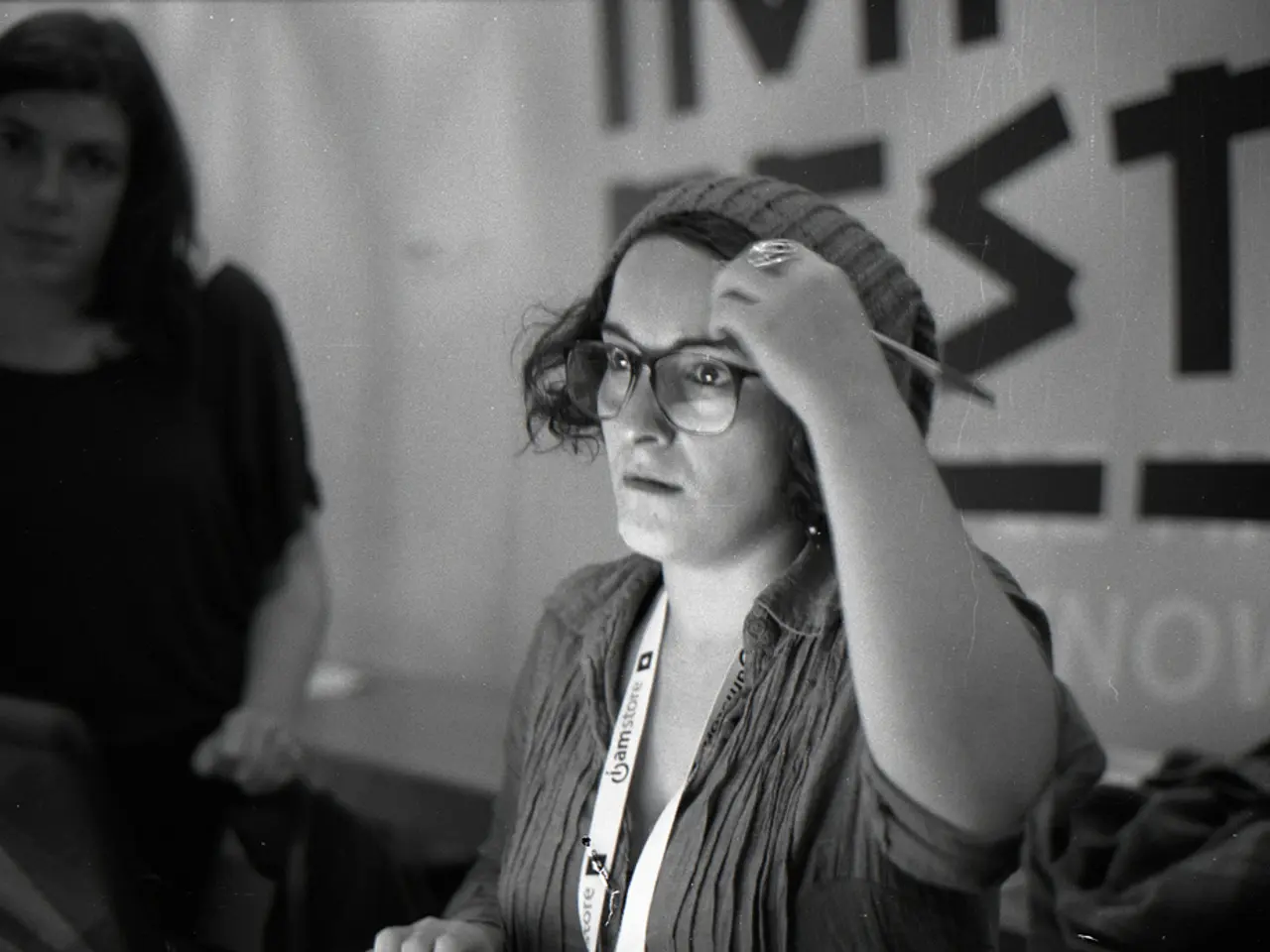Interview Insights from Hadiya Jones, a Graduate Student
Unveiling the Digital Narratives of Black Middle-Class Identity: A Study by Hadiya Jones
In contemporary society, the socio-historical context of online content by Black women concerning Black middle-class identity is deeply rooted in the legacies of racial, gender, and class struggles, as well as ongoing cultural and political dynamics. This article delves into the research of Hadiya Jones, a graduate student at Princeton, who is studying the intersection of race, gender, and class, with a focus on black middle-class millennials navigating their identities online.
Historical Foundations and Respectability Politics
Black middle-class identity, particularly for Black women, is tied to historical socio-economic roles such as domestic labor in the post-Reconstruction era. During this time, Black women were hired primarily as domestic workers by white middle- and upper-class families, which simultaneously reflected Black labor exploitation and contributed complexly to notions of respectability and middle-class status within Black communities.
Cultural Legacies and Feminist Dimensions
The idea of "traditional values" among some Black women online content creators reflects a nuanced continuation of cultural and gender roles that blend domesticity with entrepreneurship and advocacy. These perspectives intersect with broader socio-political movements, including resisting or appropriating certain "respectability politics" frameworks and engaging in cultural production that expresses Black excellence and middle-class identity.
Contemporary Economic and Social Realities
Online content by Black women about middle-class identity often grapples with contemporary pressures such as economic downturns and recession impacts, which disproportionately affect Black middle-class Americans, many of whom work in public sector roles. This economic precarity adds complexity to how Black middle-class identity is performed and discussed online, where narratives of resilience, community uplift, and Black liberation are common themes, intersecting with experiences of racism, colorism, and systemic inequality.
Content Themes and Mediums
Platforms like TikTok and blogs provide space for Black women to articulate and explore Black middle-class identity through discussions of consumer culture, community belonging, and nuanced experiences of visibility and representation. This content often navigates affirmations of Black excellence while critiquing class stratifications within Black communities.
Broader Identity Discourses
Academic research and qualitative studies highlight how Black women perceive race and class as interconnected, emphasizing that Black middle-class identity online is not monolithic but reflects varied experiences shaped by intersectional identities and anti-racism efforts. The online discourse participates in a wider conversation about race, class, and colorism within African American identity politics, reflecting long-standing academic and community struggles to define and express middle-class Black identity authentically.
Jones's research project, which she has been thinking about since her freshman year of college, is now coming to fruition in graduate school. She finds studying race, especially focusing on Black women, to be more of a challenge in certain spaces of graduate school. However, the flexibility of time that the world of academia provides allows her to explore her research interests thoroughly.
Jones's dissertation explores the rise in online content by Black women and its transition to mainstream media. She conducts interviews with visual media creators, fans, and Black middle-class millennials, and participates in online fan communities, mainstream production studios, and related conferences. Her project uses virtual ethnography, digital humanities, Black feminist thought, and comparative sociology as methodologies.
In conclusion, the online content by Black women about Black middle-class identity emerges from historical labor and respectability politics legacies, feminist interventions, economic challenges, and contemporary cultural expression. These factors influence how middle-class status is understood, represented, and contested in digital spaces within larger socio-political contexts.
This interview is part of a series titled "Graduate Student Reflections" and is published in "Plans After Graduation". Jones's research on black women in media is inspiring to someone who has recently completed research on the same topic. Taylor Griffith, the Social Sciences Correspondent, finds Hadiya's experiences insightful and looks forward to learning more about her work. Jones maintains a balance between her academic and personal life by intentionally setting aside time for personal activities and not allowing work to stress her out.
- Hadiya Jones's research, focusing on undergraduate research avenues, aims to examine the transformation of online content by Black women about Black middle-class identity from niche platforms to mainstream media, offering insights into education-and-self-development and personal-growth aspects within this context.
- In her dissertation, Hadiya Jones encompasses various research methodologies such as virtual ethnography, digital humanities, Black feminist thought, and comparative sociology, utilizing these tools to delve into the intersection of digital narratives, education, and personal growth, specifically concerning Black middle-class identity.




